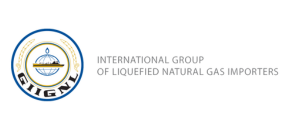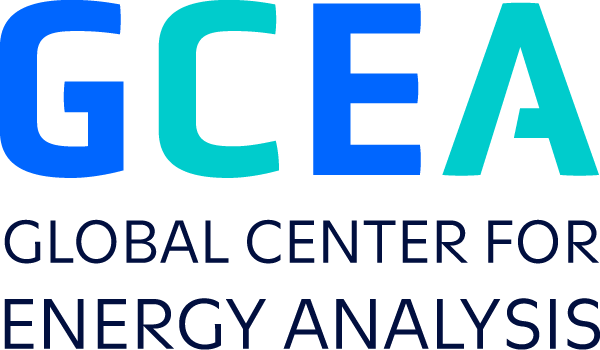Japan's Hydrogen Fund: A Game Changer for the Global Energy Transition and Why it Matters at the Japan Energy Summit & Exhibition 2025
Japan’s new Hydrogen Fund is making headlines, marking a pivotal step in the country’s energy transition strategy. With an initial $400 million raised from major investors, including Toyota Motor Corporation, Sumitomo Mitsui Banking Corporation, and TotalEnergies, the fund represents a bold push to scale up hydrogen technologies and drive the global clean energy agenda. But why is this announcement so significant, and what does it mean for the upcoming Japan Energy Summit & Exhibition 2025?
A Major Milestone for Japan’s Energy Leadership
The launch of Japan’s Hydrogen Fund, managed by leading private equity firm Advantage Partners and was launched by the Japan Hydrogen Association (JH2A), the largest private hydrogen value chain promotion council in the country, is a clear indication that Japan is doubling down on its efforts to advance low-carbon technologies. As the first fund of its kind in Japan, it sets an ambitious target of raising over $1 billion to fuel the hydrogen economy. This isn’t just a domestic effort; JH2A is working closely with the Ministry of Economy, Trade, and Industry (METI) to establish hydrogen supply chains in the Indo-Pacific Economic Framework (IPEF) region. For Japan, this is about more than energy independence—it’s about shaping the future of global energy markets.
The relevance of this fund to the Japan Energy Summit & Exhibition 2025 cannot be overstated. As the country’s fastest growing energy-focused event, the Summit will be the ideal platform for stakeholders in hydrogen technologies to connect with government bodies, financial investors, and industry leaders. For international exhibitors looking to enter Japan’s energy market, this fund represents a massive opportunity to showcase hydrogen innovations and explore partnerships that could shape the future of clean energy.
Why This Matters for Global Energy Players
The Japan Hydrogen Fund aligns closely with the priorities of the Japan Energy Summit & Exhibition, particularly in its mission to drive investment in cleaner technologies. Hydrogen is increasingly being seen as a vital component in achieving global decarbonisation targets, and Japan is positioning itself as a leader in this sector. For companies involved in hydrogen technologies, this fund offers not only financial support but also the chance to be part of a rapidly growing market.
With Japan’s hydrogen ambitions tied closely to its Strategic Energy Plan update in 2025, which will likely feature new policies and subsidies for clean energy, the timing of the Japan Energy Summit & Exhibition could not be more significant. Exhibitors and attendees will have the opportunity to align their strategies with these new policies, making the summit a critical touchpoint for shaping the energy landscape.
Strategic Importance for Exhibitors
For international companies, especially those in hydrogen technology, the Japan Energy Summit & Exhibition 2025 is a critical platform to engage directly with Japanese stakeholders. The Summit offers unparalleled access to Japan’s energy leaders and financial backers, including many of the key players involved in the hydrogen fund. As Japan looks to increase its hydrogen capabilities both domestically and across the Indo-Pacific, the Summit will serve as a marketplace for innovation, collaboration, and investment.
Key reasons why exhibitors should take note:
-
Direct engagement with investors: The fund represents a critical source of capital for hydrogen projects, and the Japan Energy Summit & Exhibition provides the chance to connect with these investors in person.
-
Showcasing innovation: Exhibitors in the hydrogen and clean energy sectors can demonstrate their technologies directly to key decision-makers from the fund, government agencies, and global corporations.
-
Collaboration opportunities: The event is more than just an exhibition; it’s a place to form long-term partnerships and explore new opportunities in hydrogen technology and infrastructure.
Driving Investment & Opportunities for Collaboration
As Japan continues to advance its hydrogen economy, the Japan Energy Summit & Exhibition will be the premier event for showcasing the latest innovations, sharing insights, and forging partnerships. With JH2A as a supporting partner, this event will offer an inside look into Japan’s clean energy strategies and provide exhibitors with the platform they need to drive forward their own ambitions in hydrogen and beyond.
This announcement joins more financing deals making headlines in recent weeks. ADNOC, in collaboration with the Japan Bank for International Cooperation (JBIC), has recently secured a landmark $3 billion green financing deal to propel forward energy transition initiatives. This significant investment highlights the essential role of clean technology in addressing climate change and advancing sustainable development within the energy sector. [Source: Energy Connects]
In June of this year, both the Japan Bank for International Cooperation (JBIC) and ADNOC were prominent participants at the Japan Energy Summit & Exhibition, joining a host of other businesses that capitalised on the event’s strategic access to the Japanese energy market. The summit and exhibition served as a vital platform for forging connections and exploring investment opportunities.
The 2024 edition of the event hosted senior representatives, investors, CFOs, and trading managers from notable organisations including MUFG Bank, JBIC, Augustus Global Investments, the Ministry for Maritime Affairs and Investment, InvestChile, InvestAlberta, Asia Investor Group for Climate Change, Bonds Investment Group, and Industry Technology Agribusiness and Investments. These participants underscore the summit's crucial role in catalysing significant investment opportunities in the energy sector.
For those in the energy sector looking to seize new opportunities, now is the time to get involved. Secure your place at the Japan Energy Summit & Exhibition 2025 to be part of this pivotal moment in the global energy transition.



















































































































